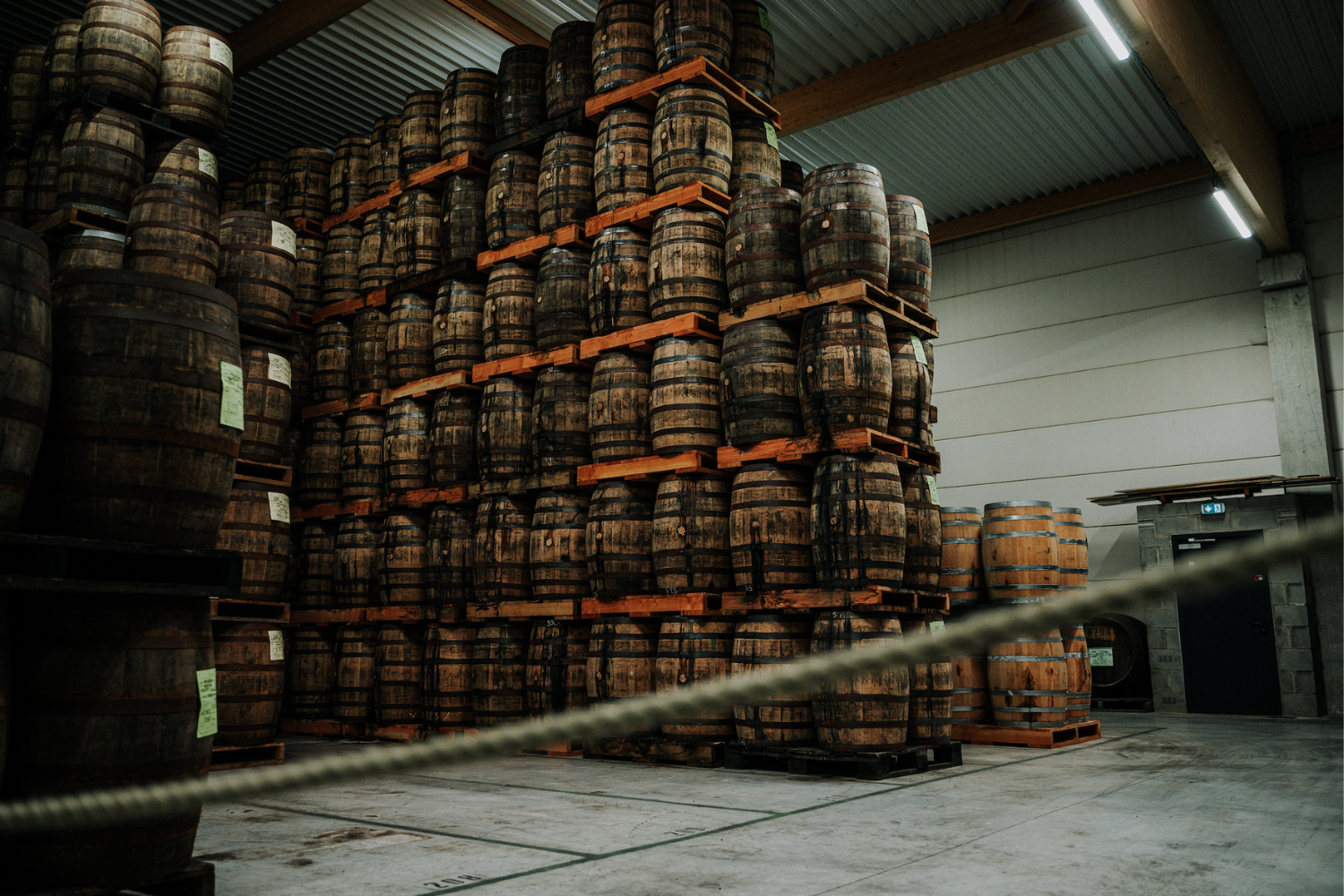Translated by Bethszabee Garner
How long does it take for mentalities to evolve? The French are among the leading consumers of single malt in the world, Scottish of course. This is not surprising: since the rise of this malt spirit in our country in the 1960s, they have been told that only whiskies from the Kingdom of Alba (the Gaelic name for Scotland) were of good quality; not without reason, of course. In the early 2000s, the Japanese began to challenge this assumption by winning awards for their fine single malts, followed by the Indians, Australians, Swedes and so on. The idea that French producers might also exist was almost unimaginable at the time. Nobody was interested in them. Worse still, they were treated with disdain. ’ At the first Whisky Live Paris, in 2004 [WLP, the unmissable event for amateurs and professionals], some people pretended to hold their noses or even to be throwing up,’ says David Roussier, director of the Warenghem distillery, the first to produce a tricolor blend in 1987, then a single malt in 1998 under the name Armorik. At the last WLP, twenty years later, there was a crowd at the French whisky leader's premises to taste his fine range, which includes ten- and fifteen-year-old vintages.
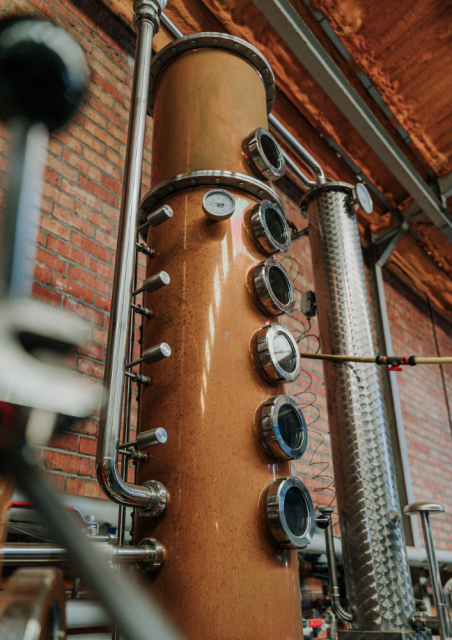
The Bretons will be the first
It is probably no surprise that the pioneers were Breton! Warenghem, the Menhirs distillery, Glann ar Mor... Today, their message is still Breton before being French. Celtic culture and the cool, sea-spray laden climate of the western coasts are no strangers to it. As Matthieu Acar recounts in his fascinating book on the history of French whisky, other daring spirits, including many brewers, followed suit in Corsica, Alsace and Lorraine, in the North and even in the Alps. In 2010, there were twenty distilleries in operation spread across nine regions. The symbolic milestone of 100 producers in France is reached in 2022, followed by 150 in 2024. Even if the volumes consumed are still relatively small compared to Scottish lochs, the movement has been set in motion and will not be stopped.
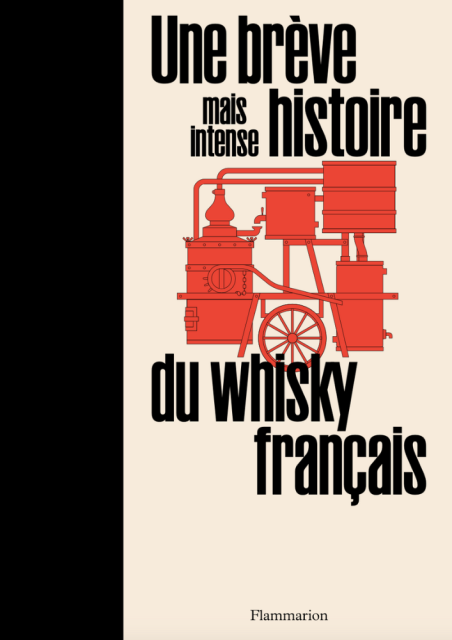
All the specialists agree: the national market is far from reaching its potential, as France has everything it needs to become a major whisky nation. ‘We have a long tradition of growing cereals and distilling fruit, talented brewers, blenders from the world of wine and cognac, coopers, still makers...’ says David Roussier, speaking as an expert: Warenghem has been a family distillery for one hundred and twenty-four years. The idea of embarking on this adventure came from his predecessor, Gilles Leizour, after reading an article in the Monde newspaper reporting the discovery of a ‘tricolour scotch’ at the 14th of July 1983 garden party at the Élysée. Warenghem, known for its liqueurs, was then going through a difficult period and Gilles Leizour was looking for a way to diversify his business. The first attempts at distilling malted barley using a small still goes back to this period. While Warenghem took inspiration from the Scottish model, the Distillerie des Menhirs took a new path by producing, in 2002, the world's first buckwheat whisky, aged in cognac barrels, which it obviously named Eddu (buckwheat in Breton). A unique signature. It was an immediate success in Brittany. ‘It was a crazy gamble, because buckwheat is very difficult to work with, with four times less yield than barley and complex processing power,’ says Loig Le Lay, who took over from his father, Guy, who came from a line of travelling distillers, with his brothers.
Leaning on our gastronomy
Gilles Leizour and Guy Le Lay, two visionaries, have opened up a realm of possibilities and paved the way for the expression of a singularity based on tremendous creativity. ‘France has this culture of taste, this ability to produce things that have never been done before,’ notes Matthieu Acar. ‘We are known for our gastronomy, I was going to say for our palate,’ adds Benjamin Kuentz. This talented forty years old wants to breathe fresh air into an industry that is still very codified. Where most creators distill, age and then blend, he first thinks about the combinations he wants and then takes orders for limited editions. His work is based on blending. ‘My starting point is writing the recipe,’ he emphasizes. Each whisky must tell a story that I translate into aromatics.’ He “composes” his whiskies like the “editor” of a collection, drawing inspiration from his encounters with a jeweler, a music composer, a chef or a shipyard manager. Iodine and salinity spring from his Uisce de Profundis batch, which has aged, like some champagnes, 20 meters under the sea off the coast of Brest. An experience in itself.
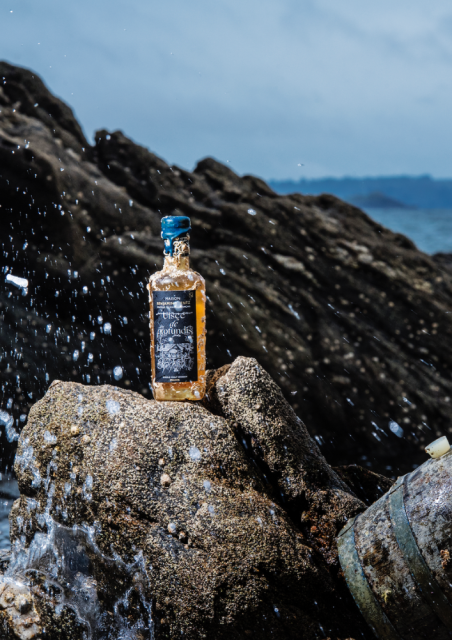
Unlike in Scotland, where it does not exist, the notion of local soil, which is so dear to our wine-growing heritage, is emphasized. It is at the heart of the approach of Frédéric Revol, an agricultural engineer, who has been producing rooted spirits since 2009. The world's first organic farm distillery, the Domaine des Hautes Glaces, located between the cliffs of the Vercors and the peaks of the Écrins, prioritizes cereals, particularly rye, while working with around twenty local farmers. ‘Here, the ecological approach and the search for flavor are one and the same,’ emphasizes Frédéric Revol. ‘We want to make the finest whiskies with as few resources as possible.’ The whiskies of La Piautre, in Maine-et-Loire, are produced in the same spirit, ‘from the field to the bottle’.
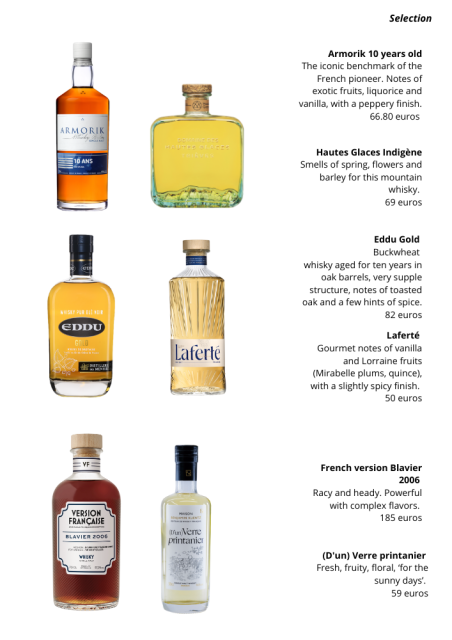
Like the Japanese
Is this the French style? ‘We have to invent our identity, as the Japanese have done,’ emphasizes Adrien Douady, the thirty year old founder of Laferté, a new brand, with two other Moët-Hennessy alumni. For the time being, French whisky is resolutely artisanal. ‘Our biggest distillery is the size of an average house in Scotland,’ says Matthieu Acar. For it to become a whisky nation in its own right, France will have to export significant volumes. It took Japan eighty years to achieve this. But now, producers are benefiting from the support and goodwill of the entire wine and spirits industry.’ The future remains to be written.
Article written by Romain Rosso, to be found in issue n°10 of OniriQ Magazine.


